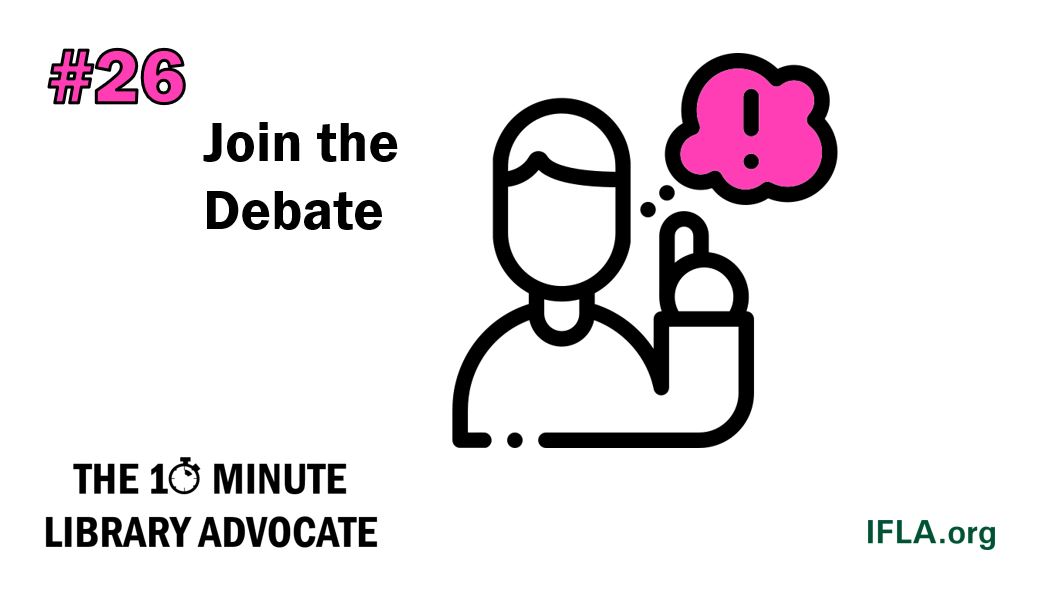
Advocacy is about engaging people.
This is easier when talking with people who are already interested in a subject, and discussing it, either in person or online.
Maybe there’s a big meeting, a consultation, or lots of talk online following a big news story.
This can be an opportunity to make people think about how libraries help!
So for our 26th 10-Minute Library Exercise, join the debate!
If you’ve only got a little time, do a social media post – see our 18th 10-Minute Library Advocate exercise for more! Make the link between the subject of the discussion.
If you have more, write a blog explaining the library angle, respond to a consultation, or even go to a public event.
This week in particular, you can join the discussion around the SDGs, using the hashtags #SDGs, #HLPF and #Lib4Dev!
Good luck!
See the introduction and previous posts in our 10-Minute Library Advocate series and join the discussion in social media using the #EveryLibrarianAnAdvocate hashtag!
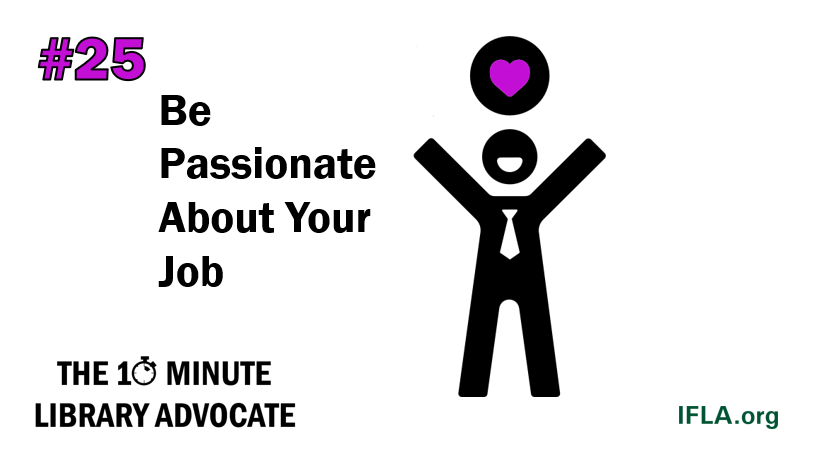
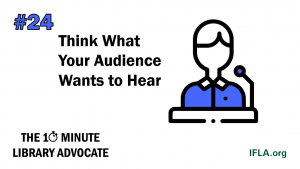 Advocacy is about getting people to agree with you.
Advocacy is about getting people to agree with you.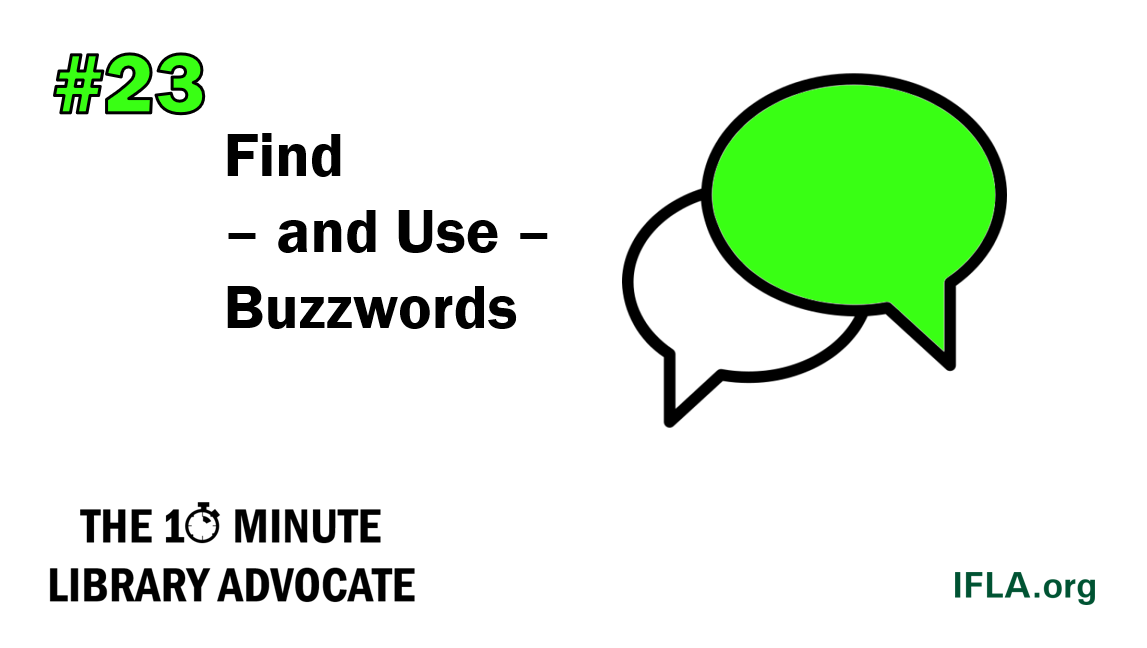
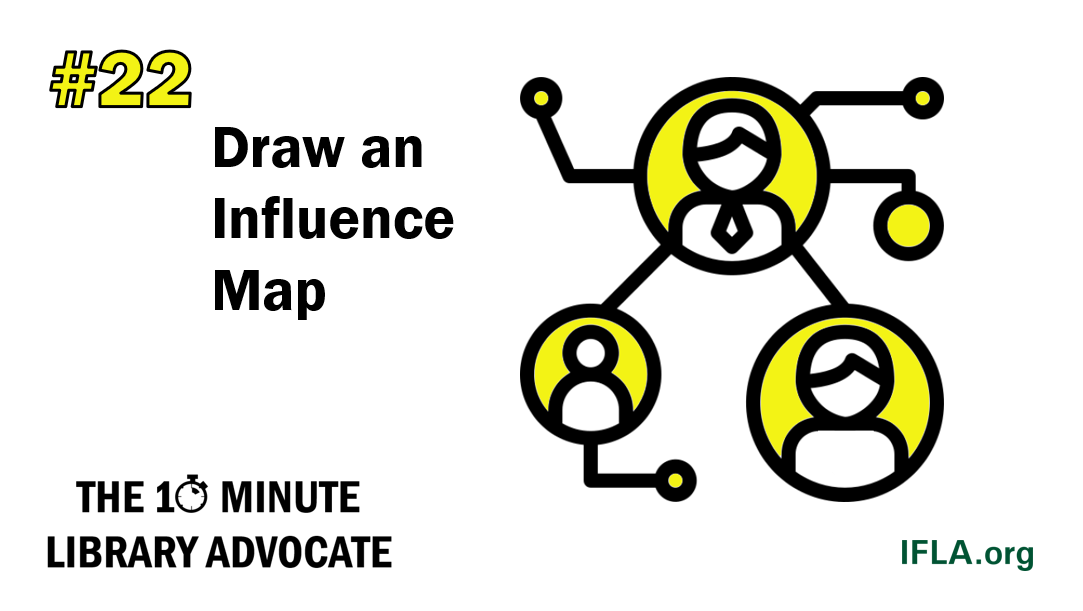
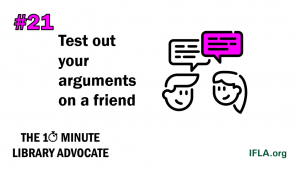 It’s not always easy to prepare good arguments.
It’s not always easy to prepare good arguments.